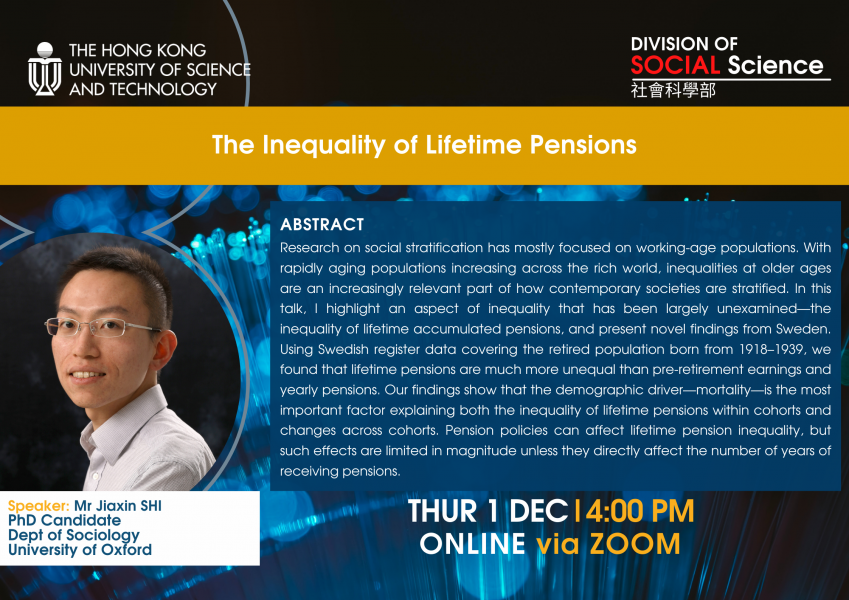Research on social stratification has mostly focused on working-age populations. With rapidly aging populations increasing across the rich world, inequalities at older ages are an increasingly relevant part of how contemporary societies are stratified. In this talk, I highlight an aspect of inequality that has been largely unexamined—the inequality of lifetime accumulated pensions, and present novel findings from Sweden. Using Swedish register data covering the retired population born from 1918–1939, we found that lifetime pensions are much more unequal than pre-retirement earnings and yearly pensions. Our findings show that the demographic driver—mortality—is the most important factor explaining both the inequality of lifetime pensions within cohorts and changes across cohorts. Pension policies can affect lifetime pension inequality, but such effects are limited in magnitude unless they directly affect the number of years of receiving pensions.
Jiaxin Shi is a doctoral student at the Department of Sociology of the University of Oxford and the Max Planck Institute for Demographic Research. His work examines inequalities in general well-being—such as health, mortality, and income—over the life course, which has appeared in Demography, Population Studies, Journal of Gerontology: Social Sciences, and SSM-Population Health among others. Previously, he studied at the European Doctoral School of Demography and obtained his MPhil in Social Science from the Hong Kong University of Science and Technology.
Remarks
- ZOOM link will be sent via email, for HKUST members ONLY
- Please use your HKUST ITSC account to join the zoom meeting.
- This meeting is being recorded. By joining, you are giving consent for this meeting to be recorded.

